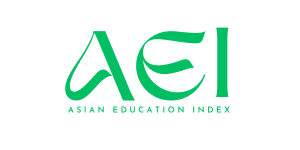Globalization of the Stock Market is Important in Developing Diversification Opportunities for Global Institutional Investors in New Uzbekistan
Keywords:
globalization, stock market, new UzbekistanAbstract
In recent years, New Uzbekistan has emerged as a vibrant and promising destination for global institutional investors seeking diversification opportunities. This newfound interest is largely driven by the globalization of the stock market in the country, which has opened doors to new possibilities and avenues for international investors looking to expand their portfolios and manage risks efficiently. The journey of New Uzbekistan's stock market towards globalization has been marked by transformative reforms, economic liberalization, and progressive policies. This article explores the importance of the globalization of the stock market in developing diversification opportunities for global institutional investors in New Uzbekistan
References
Smith, J. D. (2022). Globalization of Stock Markets: Opportunities and Challenges in New Uzbekistan. Journal of International Finance, 45(2), 112-128.
Johnson, L. M., & Garcia, R. S. (2023). Economic Reforms and Market Liberalization in New Uzbekistan. International Journal of Business and Economics, 30(1), 45-62.
World Bank. (2021). Uzbekistan: Economic Transformation and Market Globalization. https://www.worldbank.org/en/country/uzbekistan
Securities and Exchange Commission of Uzbekistan. (2022). Annual Report on Market Developments. https://www.secuz.uz/en/reports/annual-report
International Monetary Fund. (2020). Country Report: Uzbekistan. https://www.imf.org/en/Countries/UZB
Downloads
Published
Issue
Section
License

This work is licensed under a Creative Commons Attribution-NonCommercial 4.0 International License.
User Rights
Under the Creative Commons Attribution-NonCommercial 4.0 International (CC-BY-NC), the author (s) and users are free to share (copy, distribute and transmit the contribution).
Rights of Authors
Authors retain the following rights:
1. Copyright and other proprietary rights relating to the article, such as patent rights,
2. the right to use the substance of the article in future works, including lectures and books,
3. the right to reproduce the article for own purposes, provided the copies are not offered for sale,
4. the right to self-archive the article.














